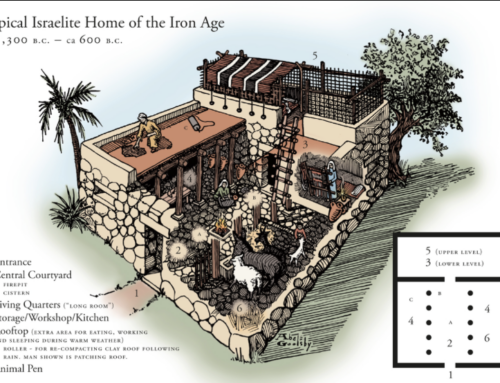In every church group I’ve ever been part of I have seen a negative spirit that runs alongside a positive, good Spirit. The negative spirit is a kind of religious malignancy–a hidden cancer that poisons everything.
Jesus touches on it in today’s gospel reading: This reading reveals an immensely subtle understanding of human psychology on the part of Our Lord.
Jesus said to his disciples:
“I tell you,
unless your righteousness surpasses that
of the scribes and Pharisees,
you will not enter into the Kingdom of heaven.“You have heard that it was said to your ancestors,
You shall not kill; and whoever kills will be liable to judgment.
But I say to you, whoever is angry with his brother
will be liable to judgment,
and whoever says to his brother, Raqa,
will be answerable to the Sanhedrin,
and whoever says, ‘You fool,’ will be liable to fiery Gehenna.”
He unlocks the hatred that lies at the heart of murder. But there is more to it than that.
His teaching on hatred is in the context of his criticism of the Pharisees. The disciples are to be more righteous than the Pharisees. This is deeply ironic because he goes on immediately to speak about hatred and murder. He’s conflating the two, and unlocking the secret that the Pharisees’ seeming righteousness is expressed as an angry judgmental attitude towards others, and this is an indication of a deeper problem: all of the Pharisees’ “goodness” is actually driven not by love, but by hatred.
Resentment–a deep and constantly running sore of resentment lies at the heart of their religion like a noxious, deeply rooted malignancy. This malignancy causes them to be deeply unhappy, but because they are good and righteous people in their own eyes, their unhappiness must be caused by someone else. So they blame “the sinners” or “the heretics” or “the Gentiles” or “the Romans” or most anyone else or anything else. They find in others the cause of their own inner resentment.
That resentment and hatred is covered over with their righteousness, religiosity and legalism. This is the way they become better than everyone else. If they are very, very good they will be better than those other people. But because this doesn’t really work they, must constantly and increasingly lash out at all the others who are not as righteous as they are. Eventually they even turn on their friends. Even their friends and allies are not as righteous, not as good, not as law abiding. In fact, because they were once friends, their treachery and betrayal is even worse.
Every time the Pharisees complete an angry attack on another–judging them, calling them fools or sinners or heretics–it makes the Pharisee feel better. It makes them feel superior. It gives them a buzz.
How do I know this? Because it feels good when I do it.
Is this twisted syndrome only part of the Pharisaical system Our Lord confronted in his time and place?
Sadly not. This malignant attitude is in the man I see in the mirror and it is hidden wherever human beings are found, and especially wherever religion is found. But it is often hard to spot because the malignant are very good at covering their tracks. They are shapeshifters. They are very good at putting on a pious facade. They form organizations and churches full of their own and they are all perfectly righteous and wonderful on the outside.
But beneath all the outward righteousness is resentment and simmering rage. This is why Our Lord calls them out. He says they are whitewashed tombs.
But be warned. He also says their father is the Father of lies and that they are a nest of vipers.
Be warned. If you discern this lie and dare to give that viper’s nest a poke they will come slithering out– all venom and vituperation.
They will sink their fangs into you, and the venom will kill…and that’s why Jesus links the whole discussion back to murder.
The resentment in the Pharisee is a dark motor to everything they do.
This is why Jesus says his disciples’ must be more righteous than the Pharisees–not just more law abiding and more pious, but driven by a different kind of goodness. Their righteousness must be of a completely different order.
They are to be motivated and driven by another power–the light filled power of the Holy Spirit.
When we are fully baptized in the Holy Spirit, the malignancy is healed and we are driven not by an inner resentment and rage, but by the Spirit of Christ himself.
How can you tell the difference?
By their fruit you shall know them.
The symptom of the malignancy is hatred, anger, restlessness, impatience, rudeness, suspicion, selfishness, violence and tantrums.
The fruit of the Spirit is different.
“the fruit of the Spirit is love, joy, peace, forbearance, kindness, goodness, faithfulness, gentleness and self-control. Against such things there is no law.” (Gal. 5:22-23)







By their fruit you shall know them.
The symptom of the malignancy is hatred, anger, restlessness, impatience, rudeness, suspicion, selfishness, violence and tantrums.
The fruit of the Spirit is different.
“the fruit of the Spirit is love, joy, peace, forbearance, kindness, goodness, faithfulness, gentleness and self-control. Against such things there is no law.” (Gal. 5:22-23)
An examination of conscience: Why do I act or not act as I do?
I see this as a good checklist to measure the motivation for my own actions towards the people in my life. But in terms of not dealing with the clergy abuse scandal for decades, it seems another standard is needed.
About the corruption and immorality in the church, I would repeat what I have said many times: each of us must do what we can with what we have where we are. If it is within our power and calling to correct the clergy, help root out corruption and speak out, then we must. If that is not within our power, then complaining and blaming doesn’t do much more than make us feel better.
I get the point you’re making. But, you were not a Catholic in the sixties and seventies like i was. We never knew what hit us (all the bad stuff that followed Vat Ii ) We were told not to judge and keep supporting our churches all the while many in the church were teaching falsehoods and some continued the horror of child abuse, and promoting homosexuality. I really do get what you’re saying and what Jesus said in the gospel. He also said to the people at one time listen and do what the religious tell you, but do not do what they do. I don’t think he was being angry and resentful, he was warning us about the same vipers again. Because I’m a sinner i get why others sin and have to get me reconciled with God. But i must not sit by like my elders did in the early post vatican 2 days and say nothing. What do you think.
I hear you. There are three observations: 1. By all means have a good grumble and vent a bit if you must, but don’t make it a habit. It will get you down. 2. Ask whether the grumbles are an attempt to just blame other people for your own inner problems. If so, it’s unhealthy. If, however, it is a justified complaint, then you will know that because you will want to do something about it. Which leads to the third point 3. Better to DO something about it than to complain. As I keep saying, Do what you can with what you have where you are. Look at our Lord. He was surrounded by a corrupt, immoral religious establishment. He poked the viper’s nest when he needed to–especially when they attacked first, but most of the time he simply go on with what he had to do.